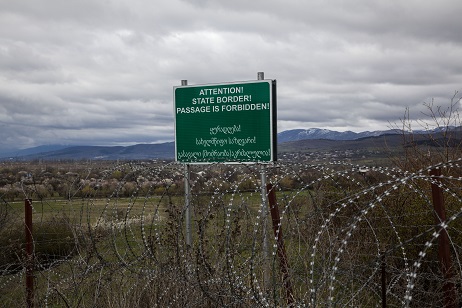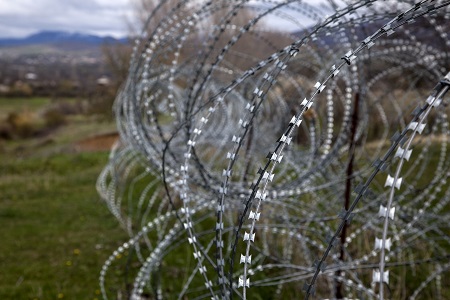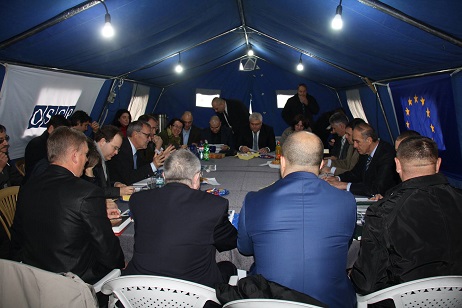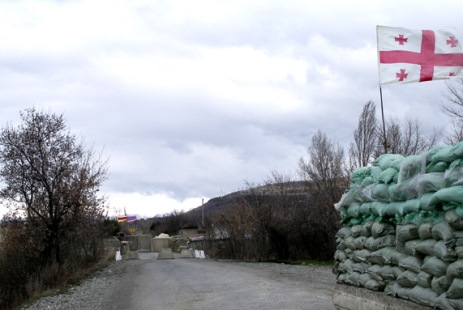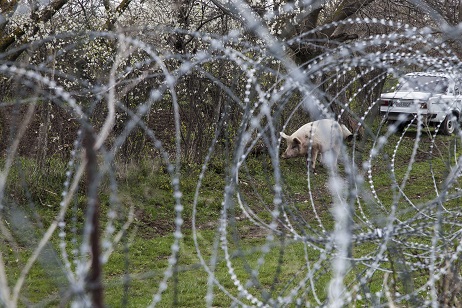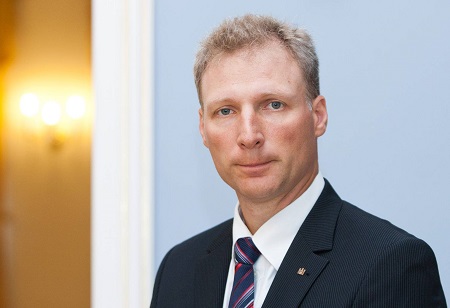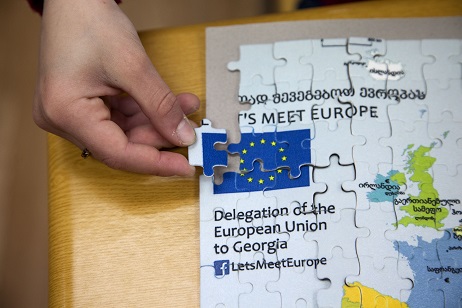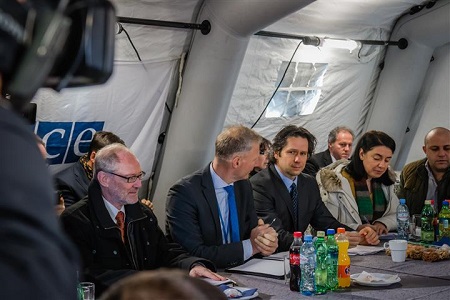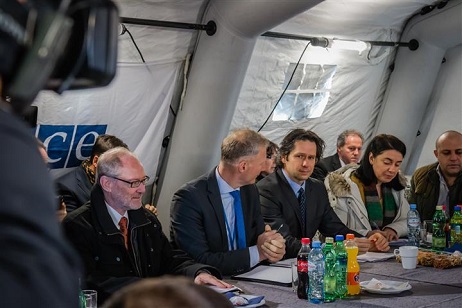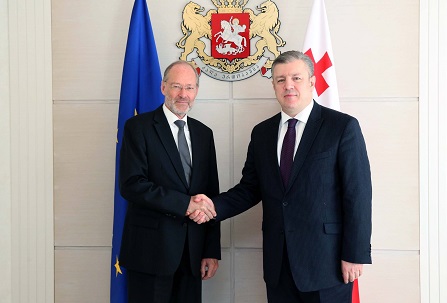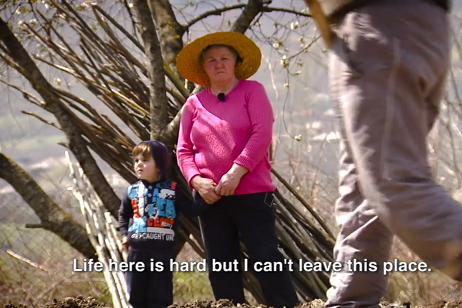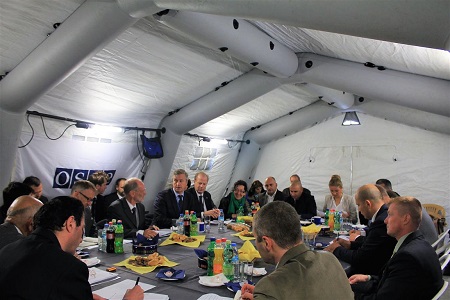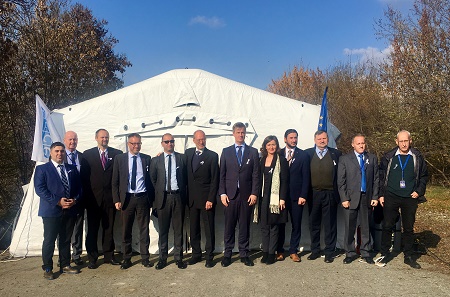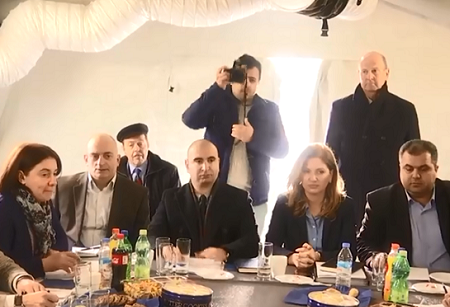Ergneti special meeting: What have Tbilisi and de-facto Tskhinvali agreed on?
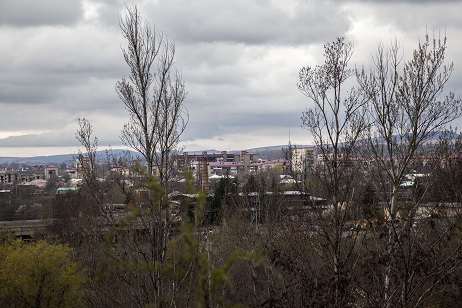
Georgian farmers whose lands fell behind the occupation line after Russia advanced 2km into Georgian territory earlier this month, will be able to freely access their harvest.
This result was achieved at today’s extraordinary meeting in Ergneti under the Incident Prevention and Response Mechanism (IPRM).
Additionally, the meeting participants also agreed a Georgian citizen who was kidnapped by Russian servicemen from his garden last week would be released tomorrow morning as the latest.
Today’s meeting was called to discuss the current security situation and in particular the recent events in the Tsitulebani and Orchosani areas along the Administrative Boundary Line (ABL) between Georgia’s breakaway Tskhinvali region (South Ossetia) and the rest of Georgia.
- On July 10, Russian forces in occupied Tskhinvali installed banners marking the so-called "state border” on the territory adjacent to Tsitelubani village in Gori municipality and Orchosani village in occupied Akhalgori district, in close vicinity to the Tbilisi-Gori central highway. These actions saw Russia’s occupational forces advance 2km into Georgian territory. This move of Russia was followed by a number of incidents along the ABL, which can be read here.
Today’s meeting was attended by representatives from Tbilisi and occupied Tskhinvali.
The Georgian side highlighted that the Central Government of Georgia wanted to provide safety along the vicinities of the occupation line. Thus, it demanded from the de-facto government of the occupied region to forbid the movement of armed men along the ABL where civilians lived.
While the parties achieved consensus regarding the agricultural lands and release of the illegally detained citizen of Georgia, they could not agree on the crucially important matter: the newly erected "border” banners will not be removed and Russia will remain 2km deeper into Georgian soil.
Moreover, although Georgian villagers were told they will have access to their harvest this year, they feared they would not be able to cultivate their lands next year and in the future.
Today’s meeting in Ertgneti was co-facilitated by Kestutis Jankauskas, the Head of the European Union U Monitoring Mission in Georgia (EUMM), and Ambassador Angelo Gnaedinger, the Special Representative of the OSCE Chairperson-in-office for the South Caucasus.
- The IPRM was created in February 2009 as a result of the Geneva Discussions that followed the 2008 Russia-Georgia conflict in Georgia. The meetings were an opportunity to identify and discuss potential risks and follow-up of incidents and issues affecting the communities on a daily basis. The meetings were co-facilitated by the OSCE and the EUMM in Georgia.
 Tweet
Tweet  Share
Share

